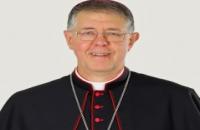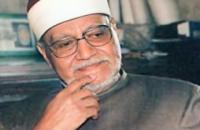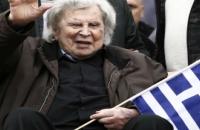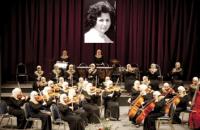
Bishop Claudio Lorati was born on February 21, 1962, in Como, Italy. Father Claudio joined the Commune missionaries of the Heart of Jesus, where he studied philosophy and theology. In 1989, he received a Bachelor of Theology from Tanzaja College in Nairobi, then completed his formative studies in management sciences at the Monastic Union (c.n.e.c), and for several years took care of the missionary press. In 1989, he was priestly in the city of Lepomo, Como. In 1995, he went as a missionary to South Sudan.
The bishop came to Egypt in 1997, in charge of pastoral duties. In 1999, he was appointed Vice-President of the Missionaries Commission, then appointed President from 2002 to 2007, and then promoted to the post of Attorney General of his monk.
On August 6, 2020, His Holiness Pope Francis announced the appointment of Father Claudio as the new Apostolic Deputy of the Latin Church in Egypt.

Reciter Abu Al-Enein Shuaisha (August 22, 1922 - June 23, 2011) is an Egyptian Quran reader who is considered one of the prominent figures in this field. It was 1939 AD, when at that time he was influenced by the reader Muhammad Refaat and had a close relationship with him, to the extent that the Egyptian radio station used him to repair the damaged parts of Muhammad Refaat's recordings. Abu El-Enein adopted a special and unique style of recitation starting in the mid-1940s, and he was the first Egyptian reciter to read in Al-Aqsa Mosque. He also visited Syria and Iraq in the 1950s. Then, he fell ill with his voice in the early sixties, but he overpowered it and returned to recitation, and he was appointed as a reciter to Omar Makram Mosque in 1969, and then to Sayeda Zainab Mosque in 1992 AD.
Sheikh Shuaisha was known as the "spirit of grief" in his reading of the Qur'an, which led to specialists describing his recital as “King of the shrine of youth,” which is the musical note that contains the anger in the melody.
Shuaisha recounts that he was the first Qur’an reciter on the school radio, and he used to receive visitors with recitations of the Holy Qur’an, and it was the director of his Christian school, “Mounir Gerges” who advised his mother and a group of notables to dedicate his efforts into reciting the Qur’an for the beauty of his recitation.
He struggled in the seventies to establish the Readers Syndicate with major reciters at the time such as Mahmoud Ali Al-Banna and Abdel Basset Abdel Samad, who was elected its president in 1988 AD.

The musician Mikis Theodorakis: (July 29, 1925 - September 2, 2021) is a great Greek artist whose works have gained wide fame because of their connection to humanitarian issues. From the soul of Greece, Mikis Theodorakis, who belongs to all of us, the teacher, the intellectual, the resister, the one who made all Greeks sing poetry is gone.” Greek Prime Minister Kyriakos Mitsotakis declared national mourning, saying that “Mikis Theodorakis is now moving into eternity, his voice is lost and with his voice Hellenism is lost too.”
Theodorakis is known for his prolific production, and his many musical chants and songs based on traditional Greek poetic works, many of which have remained at the head of contemporary Greek literature for many decades. In addition to symphonies and dozens of cinematic works, most notably the traditional Greek music "Sirtaki" in the movie (Zorba the Greek).
Theodorakis has received many international awards and in recognition of the efforts he made to serve his country in the creative field and enhance national awareness of people, the most famous of which is the International Saint Andrew the First’s Prize, which was previously awarded to well-known international figures such as the head of the Russian Orthodox Church Alexy II, and the Director General of UNESCO Kocheromatsurya.

The Light and Hope Association was founded in 1954 by a group of female volunteers, headed by the late Mrs. Istiklal Radi, who had the idea of establishing the association; Which aims to rehabilitate blind girls to work in suitable professions, so that each of them is a useful member of society and to guarantee them a decent livelihood. The message of The Light and Hope Association was initially launched by the Red Crescent Association in the form of a committee for the care of the blind, providing financial and in-kind assistance, and assisting the families of the blind in enrolling their family members in schools and at work. The volunteers would go to the blind’s homes to provide aid and assistance to them. In 1972, the dream of “The Light and Hope” female musicians started from the association’s headquarters, to become a prominent mark in the association’s achievements, and a shining spot in the Egyptian culture. Then, soon enough the orchestra became at the head of the Egyptian cultural exchange movement with various countries of the world. The first invitation received by the orchestra was from Austria in 1988. Austrian Chancellor Chansler Franzsky described the orchestra, saying: "The orchestra filled Vienna with music," while the mayor of Linz said: "The presence of the Orchestra of Light and Hope is the most beautiful event of our city in modern times." Then there were calls from various countries. In 1989, The International Authority for the Welfare of the Handicapped in West Asia invited the orchestra to hold a concert during the ESCWA conference, then it was invited to: Kuwait, England, Sweden, Germany, Spain, Qatar, Japan, Thailand, Emirates, Canada, and others. The orchestra has won a large number of awards, including the shield of the Kuwaiti Women's Social and Cultural Association, the shield of the "Sixth Arab Camp for the Blind" in Alexandria, the shield of the Qatari Red Crescent Association, the shield of the United Arab Emirates, and the German Excellent Progress Cup.